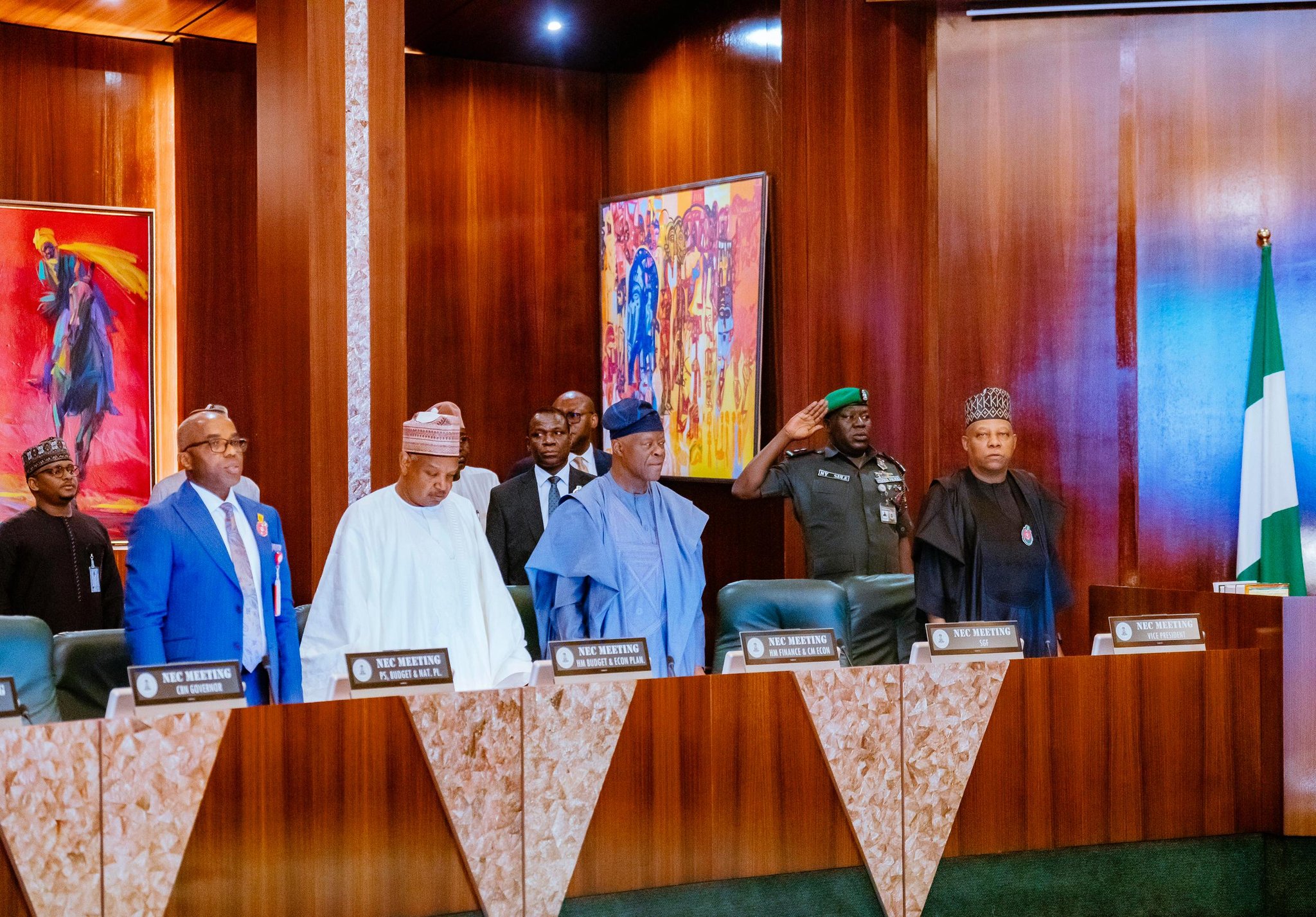Nigeria’s National Economic Council recommends withdrawal of tax reform bill

The National Economic Council (NEC) comprising the 36 state Governors and chaired by the Vice President, Kashim Shettima has recommended the withdrawal of the Tax Reforms Bill currently before the National Assembly.
This advice was given on Thursday after the council’s 145th meeting in Abuja.
The council’s recommendation was in response to a presentation by the Chairman of the Presidential Fiscal Policy and Tax Reforms Committee, Mr. Taiwo Oyedele, where it recommended more extensive consultation with stakeholders to ensure alignment on the significant impacts of the proposed tax reforms.
- The Vice President stated that the tax reforms initiated by President Bola Ahmed Tinubu’s Renewed Hope Administration are designed to broaden the nation’s revenue base, promote economic stability, and reduce dependency on specific sectors.
- He acknowledged that these reforms have created opportunities to address stakeholders’ concerns, especially concerning VAT reform and its impact on sub-national revenues.
- Governor Seyi Makinde of Oyo State explained that the NEC recognized the need for alignment among stakeholders regarding the proposed tax reforms.
- He highlighted the spread of miscommunication and misinformation around the bill, stressing the importance of broader consultation and consensus-building.
- Makinde noted that the council acknowledged the country’s underperformance in key revenue sources and considered a report from the Presidential Committee on Fiscal Policy and Tax Reforms focused on fair taxation, responsible borrowing, and sustainable spending.
Governor Umaru Zulum of Borno also confirmed the council’s recommendation to withdraw the bill to enable consensus-building.
Earlier opposition to the tax reform bill
The recommendation of the NEC comes as another stumbling block to the success of the tax reform bills which have currently passed first reading in the senate.
- Earlier in the week, the Governors of the 19 Northern states together with traditional rulers and stakeholders from the region voiced their opposition to the bill especially the draft on the derivation-based model of Value Added Tax (VAT) distribution among the federating units in the country.
- In his reaction to the opposition by Governors from the 19 Northern states, Chairman of the Presidential Committee on Fiscal Policy and Tax Reforms, Taiwo Oyedele explained that the injustice in the current VAT distribution model also affects states in the north and not only the southern counterparts.
Current VAT distribution model
Under Section 40 of the VAT Act, revenue is currently allocated as follows: 15% to the Federal Government, 50% to the States and FCT, and 35% to Local Governments, with a derivation principle ensuring at least 20% is distributed based on where the VAT is generated.
- Although not explicitly stated in the VAT Act, other factors influencing distribution include 50% allocated equally and 30% based on population. Additionally, a 4% collection fee is allocated to the FIRS, and 2% to the NCS for import VAT.



